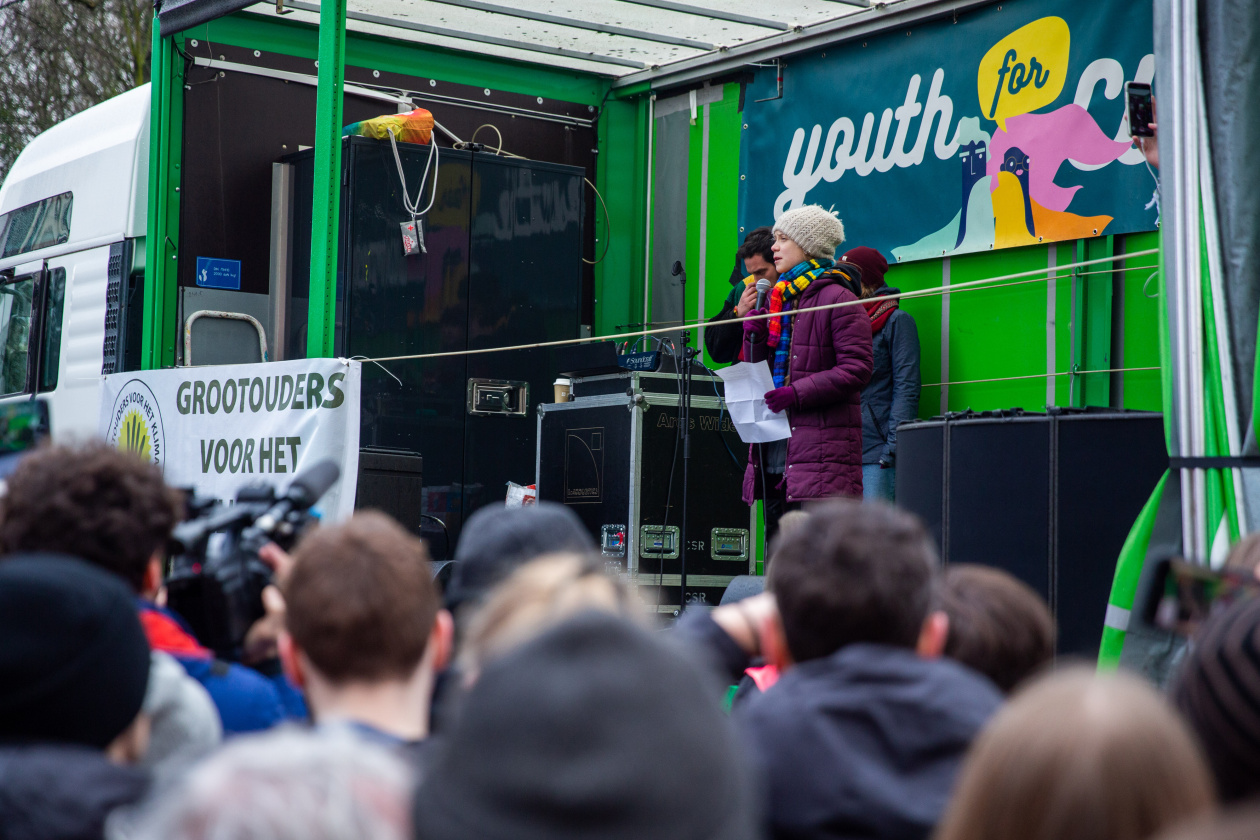 © European Union, 2020
© European Union, 2020
Youth calling for climate action throughout Europe
Last updated on Tuesday, 28/09/2021
The last decade was the hottest on record and thousands of young people have called for urgent climate action all over the world.
This global movement calls students to skip classes to protest on Fridays under the banner #FridaysForFuture, all around the world. It all began when 15-year-old Greta Thunberg started protesting for stronger climate action in front of the Swedish Parliament in August 2018. Little by little, this movement spread all over the world. Greta has since gained global recognition, been nominated for the Nobel peace prize in 2019 and 2020 and named Time magazine’s person of the year 2019.
Amongst other requests, protesters are asking world leaders to respect the Paris Agreement, which was the first-ever universal, legally binding global climate deal signed by 195 countries in 2015. Its main objective is to limit the increase in world temperature to 2°C from the pre-industrial era, before the end of the century, and to pursue efforts to limit it even further to 1.5°C.
Youth's demonstration for climate in Brussels, with the presence of Greta Thunberg (Brussels, 21/02/2019)
Youth demands
All around the world, young people see environmental crises unfold one after the other, and most of the protests connect global and local demands. Young environmental activists are angry that not enough has changed while scientists are repeatedly warning us that we are reaching a point of no return for the climate.
“Why should I be studying for a future that soon may be no more, when no one is doing anything to save that future? And what is the point of learning facts when the most important facts clearly mean nothing to our society” - Greta Thunberg
In a recent survey, young people mentioned protecting the environment and fighting climate change as a top priority for the European Union (Eurobarometer 478). Across the EU, citizens are very concerned about climate change and support action to tackle it (Eurobarometer on climate change).
What do young people want? Many young people active in the climate movement call for radical changes to tackle the climate crisis, for example by accelerating actions to reduce greenhouse gas emissions, stopping investments in fossil fuels, protecting biodiversity and restoring ecosystems.
Those protests clearly show that youth activism takes an important place in Europe and beyond. Young people are leading change within their communities and are calling adults to take their responsibilities to save their future.
How can the European Union support young activists?
Climate action is at the heart of the European Green Deal – an ambitious package of measures ranging from aspiring to cutting greenhouse gas emissions, to investing in cutting-edge research and innovation, to preserving Europe’s natural environment.
The EU and its member countries take part in international efforts to fight climate change under the UN climate convention.
Alongside this political action, the EU offers different funding opportunities to young people and youth organisations. Although those programmes are broader than just climate change, it is possible to run projects under this theme:
- European Solidarity Corps: a volunteer-based initiative that allows young people to make a hands-on contribution in various areas including environmental protection. The scheme is open to young people 17-30 years of age.
- Erasmus+ youth exchanges: allow groups of young people of 13-30 years of age from different countries to meet, live together and work on shared projects for short periods (5-21 days).
- Erasmus for young entrepreneurs: a cross-border exchange programme which gives new or aspiring entrepreneurs the chance to learn from experienced entrepreneurs running small businesses in another participating country.
The EU institutions have dialogue mechanisms with young people, through the EU Youth Dialogue, the citizens’ dialogues and other initiatives.